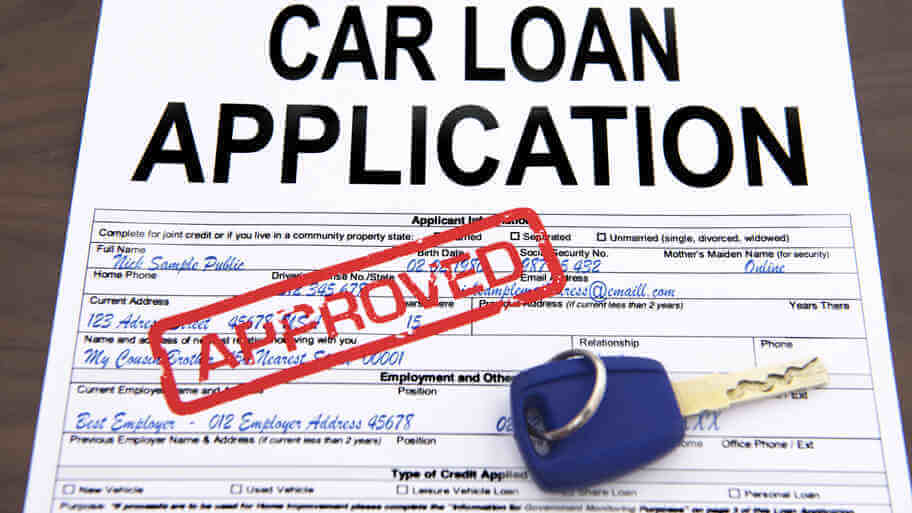Are you thinking of getting a car loan with fair credit? Are you worried that you may not get favorable interest rates? Or, worse still, that the dealer might mark up your interest rates beyond what you qualify for or deserve?
Most financial advisors recommend applying for a 721 credit score auto loan; you should have a credit score of above 689. So, what do you do if your rates are lower than this, say between 630 – 689? Read on to find out.
Step-by-Step Guide on Qualifying for a Car Loan with Fair Credit
Here’s a step-by-step guide on how to qualify for the best loan rates with fair credit scores.
1) Get Ready
Before you visit the dealer, ensure you’ve thoroughly researched and understood every detail of the loan requirement. You can use the following questions for guidance:
How Much Do You Want to Spend on the Car?
We recommend not spending above 10% of your take-home salary on buying the car and between 10% – 15% on overall expenses (including insurance, maintenance, gas, and repairs). The amount of money you’re willing and able to spend on the car helps you determine the type of car you’ll purchase, whether you’ll get a new or pre-owned one, and the amount of loan you need. Set a realistic target purchase price that will not dent you financially or expose you to the risk of a financial crisis.
How Much Cash Do You Have for a Down Payment?
The downpayment significantly influences whether you’ll secure the loan and at what rates. For a new car, we recommend depositing at least 20% of the vehicle’s purchasing price. For used cars, aim at least 10%. The more down payment you make, the lower the interest rates and the easier you’ll find it to settle the loan with a low car payment. However, try as much as possible not to interfere with your emergency funds or savings.
How Much Can You Pay Back Monthly?
A car shouldn’t be a financial burden. The 28% rule of thumb states that not more than 28% of your take-home salary should go to loan repayment. If the monthly repayments seem too high, consider marshaling up a more down payment
Should You Get a New or Pre-Owned Car?
Buying a used car will help you reduce the initial cost, but new cars also have their fair share of benefits. Even as you’re focusing on saving money and bagging the cheapest offer, consider the long-term financial impacts of your decision. For instance, it’s more sensible to spend a few bucks purchasing a new car that will stay for longer than saving and buying a pre-owned car that will depreciate and wear out in a few years.
2) Check Your Credit
Several sites provide free credit scores. Some of them may not be entirely accurate, but most use the same scoring models as regular dealers; hence will give you a general estimate of your status.
Once you have the credit scores, review them for any errors. Not once have we seen people discovering glaring mistakes that are holding down through verification. Request a detailed report from either of the three major credit score agencies — Equifax, TransUnion, or Experian.
If you identify any errors, register a dispute with the credit bureaus. They typically take a few months to correct the mistakes and reflect your new scores.
Why the craze about credit scores? Well, the higher your rating, the more loan you’re likely to secure and at the lowest interest rates.
What if you have a joint-borrower? Whose credit score is used on a joint auto loan? Well, the dealer is likely to check both of your ratings and find an average score. Most dealerships allow borrowers to refinance an auto loan to remove the cosigner midway through the repayment plan.
3) Get Preapproved for an Auto Loan
Apply for a pre-approved auto plan before visiting the dealership. Doing so has two main benefits:
-
-
- It enables you to estimate the amount of loan you can qualify for, which is crucial in deciding the type of car to buy
- It makes the car-purchasing process simpler by enabling you to bargain with the dealer as a cash buyer. Also, the dealership’s finance manager will be working to beat an interest rate that you’ve already negotiated to a lower amount.
-
4) Design Your Deal
Designing the deal is arguably the most crucial step when getting a car loan. You can use an auto loan calculator to find the best deals that won’t inconvenience you.
If you aren’t sure about your qualification status, make a larger down payment. While 20% of the purchasing price is the average recommendation, there’s no harm in going higher than this—especially if you have the money and your credit score isn’t promising.
The trick is to design a deal that you can comfortably finance. You should settle auto loans as soon as possible. That’s because as the car ages, you’ll begin incurring additional maintenance and repair costs. Besides, its value keeps on depreciating. And we are sure you don’t want to own more to an auto lender than the vehicle’s market value. We recommend designing a deal that will enable you to settle the loan in under 36 months or 60 months for new cars. Your payments will be a little higher, but you’ll be relieved in the long run.
In most states, you’ll also pay sales fees and taxes that amount to approximately 10% of the car’s purchase price. Therefore, you should factor in these expenses when designing the deal.
If you notice that you made an error in designing the deal after closing the agreement, you can refinance an auto loan with extra cash and bargain for better rates. However, not all dealerships allow these.
5) Know What the Dealer is Looking For
The two primary things most dealers look at include:
-
-
- Your auto-specific credit score: It entails your car-related financial history and depends on how much well you’ve settled previous auto loans, vehicle repossession history, and any bankruptcy claims.
- Income stability: Here, the focus is on how much money you earn, which helps the dealers to gauge your ability to service the loan.
-
6) Try To Build Your Credit from Fair to Good
If you can’t secure a loan for your dream car with your current credit score, consider working on building your ratings:
-
-
- Pay your bills on time
- Use as less of your credit limit as possible
- Avoid making too many credit applications
- Settle any outstanding loans
-
Source Image: Megapixl








